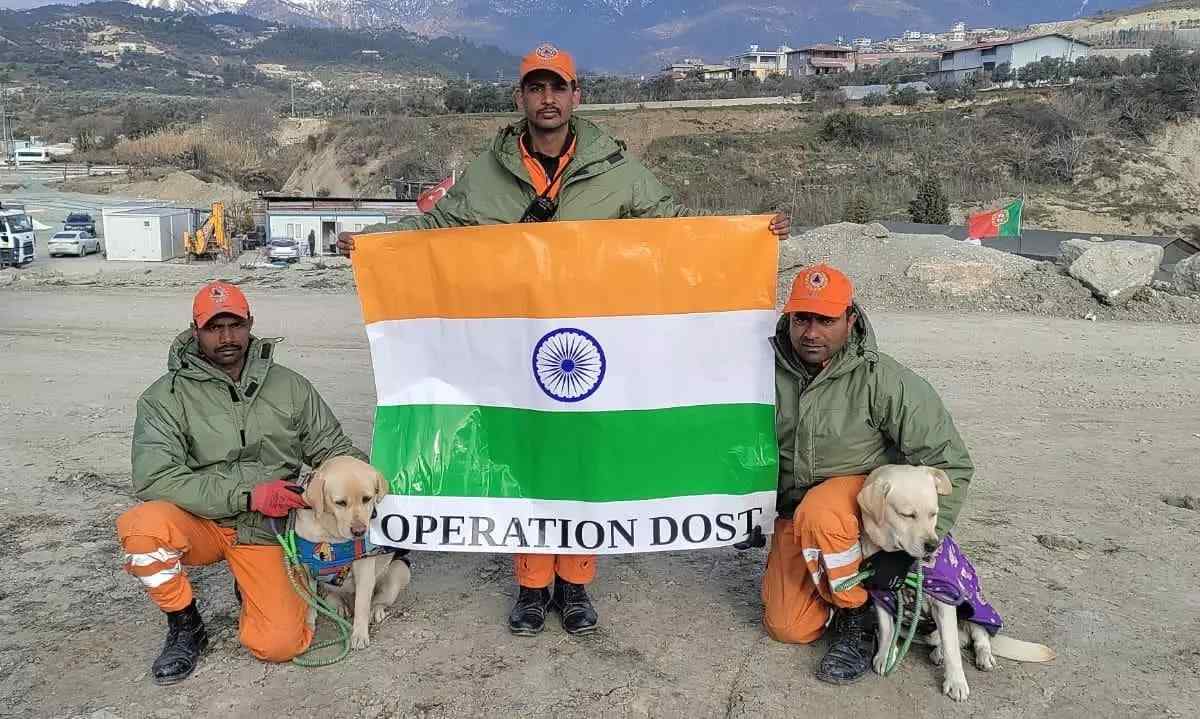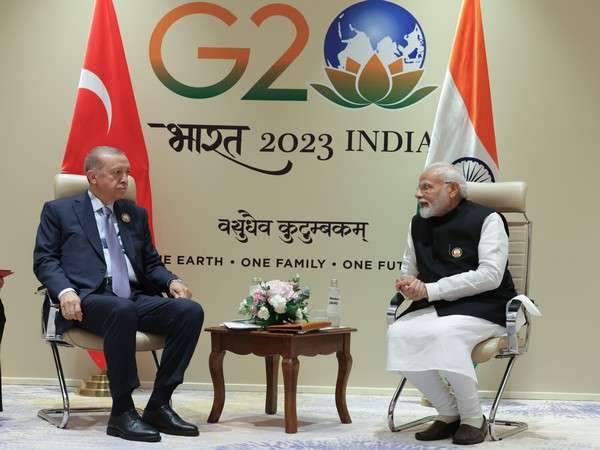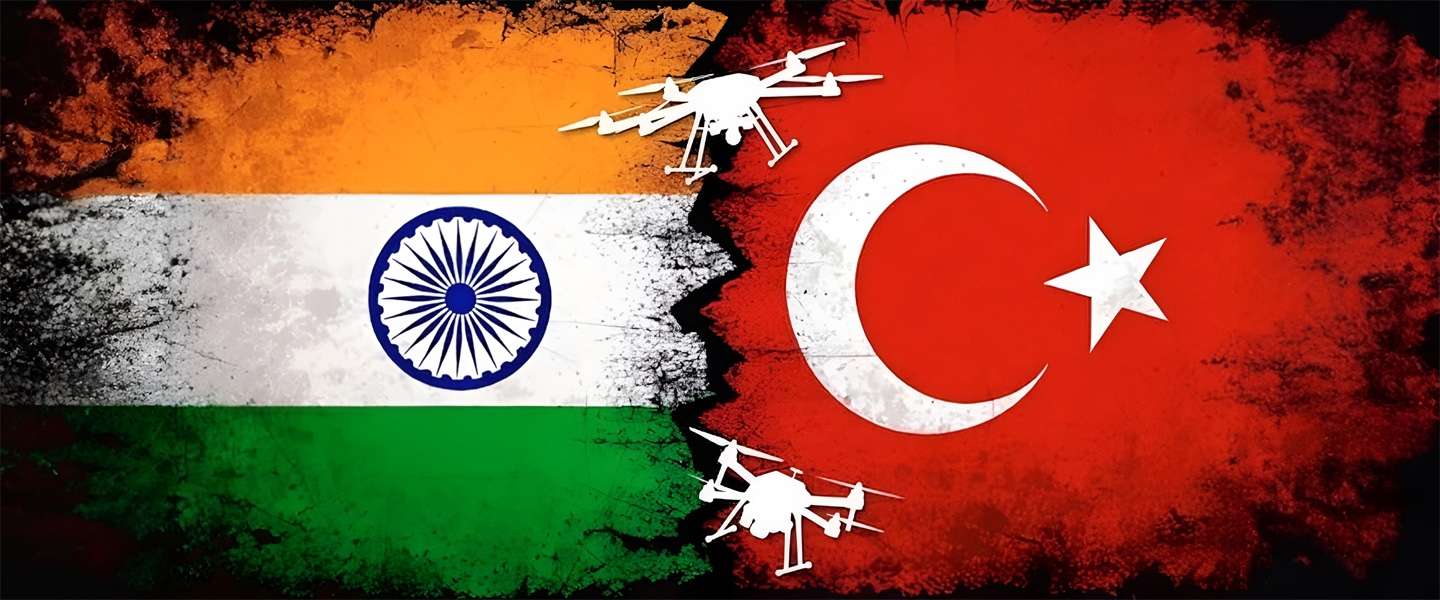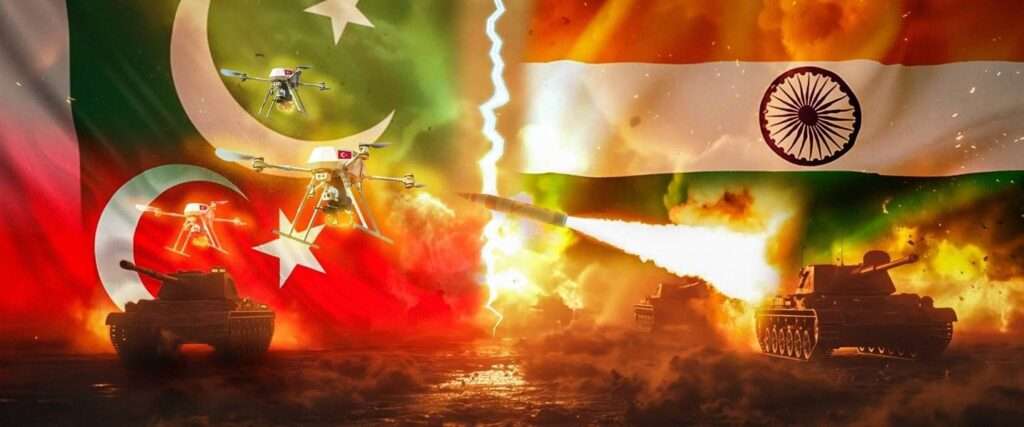In the complex world of international relations, few incidents are as ironic and tragic as the escalating tension between India and Turkey. India has consistently demonstrated goodwill, economic cooperation, and humanitarian assistance to Turkey. Since the Pahalgam terror attack that led to a significant loss of life in Kashmir, and Turkey’s more strident support of Pakistan during India’s military initiative, Operation Sindoor, it has become increasingly evident that Turkey has betrayed India’s trust through its recent actions.
Operation Dost: A Symbol of India’s Compassion
When Turkey was hit by catastrophic earthquakes in February 2023, India was among the first countries to step up and help. Under the name Operation Dost, the Indian government mobilised a large humanitarian response. Seven Indian Air Force C-17 aircraft carrying relief cargo, consisting of over 50 tons of relief materials, as well as search and rescue equipment, medical teams, NDRF Teams, dog squads, and a field hospital. It was also a rapid action, sincere effort.
India did not hesitate. It did not calculate whether there were diplomatic benefits to this. It just acted. For Turkey, which had just suffered a terrible natural disaster, the Indian response was not just humanitarian aid, it was empathy in action, it was friendship in its truest form.
Economic Bridges: India’s Contribution to Turkey’s Growth
In addition to the original aspects of crisis support, India has done substantial work in supporting Turkey’s economy. Bilateral trade reached a total of $10.43 billion in FY 2023-24 and has emerged as a substantial economic partner in Turkey. India’s substantial major companies like TATA Motors, Mahindra & Mahindra, Aditya Birla Group, and Wipro have now invested in Turkey and have entered the market with over $200 million of Foreign Direct Investments since 2000.
These numbers mean so much more than just numbers – it means jobs, it means technology, it means infrastructure, and it means growth in Turkey. India didn’t just trade; it trusted, developed jointly, and pictured its future together. India approached Turkey not simply as a partner to trade with, but as their friend with whom they could share common prosperity.

The Painful Paradox: Drones for Aid?
Despite a long-standing goodwill and humanitarian response from Turkey, the recent developments suggest a deeply troubling betrayal. While Indian hands were delivering humanitarian aid and supplies to the earthquake-stricken streets of Turkey, it became clear that Turkey was reportedly supplying drones to Pakistan, with those drones now set to be used against the Indians, specifically against Indian civilians and military targets. These are not mere insinuations presented behind the scenes in diplomatic gatherings; instead, these assertions are based on Indian intelligence briefs, which have triggered our national outrage and calls for a boycott of Turkish products.
At a time when India was supposedly rallying around Turkey, offering humanitarian assistance and solidarity, Turkish President Recep Tayyip Erdoğan was publicly and unequivocally reaffirming Turkey’s allegiance to Pakistan, and described Pakistan as a “brotherly nation.” Moreover, his support of the country goes beyond a political veneer as he supposedly has expressed that Turkey and Pakistan have military cooperation and a joint strategy on Kashmir, specifically aimed at targeting Indian interests. For many Indians, this concurrence and juxtaposition of activities is much more than just a political insult; it is a profound betrayal.

The Trust Erosion: Turkey’s Strategic Misstep
Turkey and Pakistan’s alliance isn’t fresh. Its history and common religious identity have influenced Turkey’s positions on South Asian geopolitics. But today, that alliance has crossed the line of responsibly balanced diplomacy. In so publicly siding with a country linked to cross-border terrorism against India, Turkey has jeopardised decades of goodwill that have been cultivated. India’s expectation was not misaligned loyalty, but a level of diplomatic balance. What India received instead was a denial of neutrality, which raised fundamental concerns around the future of India-Turkey relations.
Conclusion:
International relations arise not solely from mutual agreements, but rather from trust, compassion, and a genuine intent by both parties for peaceful relations. India has adhered to its end of this informal agreement, be it through economic cooperation, humanitarian assistance, or non-alignment. Turkey, however, has opted for political posturing over partnership, drones over dialogue, and allegiance over friendship. The world is watching, and so is India. As Ankara leans towards its Monday night alliance with Islamabad, it must ask, was the trade about betraying a friend worth whatever temporary and fleeting political gain it acquired? While India sent help, Turkey sent harm, and that’s not just a diplomatic breach, that’s a breach of humanity.

